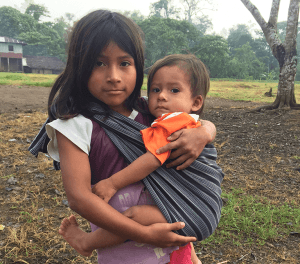Dorsa Amir in Nautilus:
 The science-fiction writer Robert Heinlein once wrote, “Each generation thinks it invented sex.” He was presumably referring to the pride each generation takes in defining its own sexual practices and ethics. But his comment hit the mark in another sense: Every generation has to reinvent sex because the previous generation did a lousy job of teaching it. In the United States, the conversations we have with our children about sex are often awkward, limited, and brimming with euphemism. At school, if kids are lucky enough to live in a state that allows it, they’ll get something like 10 total hours of sex education.1 If they’re less lucky, they’ll instead experience the curious phenomenon of abstinence-only education, in which the goal is to avoid transmitting any information at all. In addition to being counterproductive—potentially leading to higher rates of teen pregnancy2 and sexually transmitted illnesses3—this practice is strange. Compare it to the practices of many small-scale societies, where children first learn about sex by observing their parents!
The science-fiction writer Robert Heinlein once wrote, “Each generation thinks it invented sex.” He was presumably referring to the pride each generation takes in defining its own sexual practices and ethics. But his comment hit the mark in another sense: Every generation has to reinvent sex because the previous generation did a lousy job of teaching it. In the United States, the conversations we have with our children about sex are often awkward, limited, and brimming with euphemism. At school, if kids are lucky enough to live in a state that allows it, they’ll get something like 10 total hours of sex education.1 If they’re less lucky, they’ll instead experience the curious phenomenon of abstinence-only education, in which the goal is to avoid transmitting any information at all. In addition to being counterproductive—potentially leading to higher rates of teen pregnancy2 and sexually transmitted illnesses3—this practice is strange. Compare it to the practices of many small-scale societies, where children first learn about sex by observing their parents!
One of the most distinctive features of the human species is its practice of cultural transmission. Our ability to retain, refine, and pass down cultural knowledge across generations has helped us survive in every habitat on the planet—and even in space. Three-hundred and fifty generations ago, we were making the switch from foraging to early agriculture. Now, the sum of human cultural knowledge, passed from parent to child for thousands of years, is a Google search away. So why is it that, despite having immediate access to virtually every area of knowledge, we Westerners paradoxically fail to directly share the most important of these insights with the next generation? Sometimes intentionally under the banner of protecting young minds, sometimes unintentionally as a result of the way our communities are structured, we dam critical information and force new generations to start from scratch, leaning on their own intuitions and the scant experience of their peers to chart a way forward. From birth and parenting to death and burial, we have built a knowledge dam that makes it harder to lead successful lives.
It doesn’t have to be this way—and, in fact, it wasn’t, until very recently.
More here.
